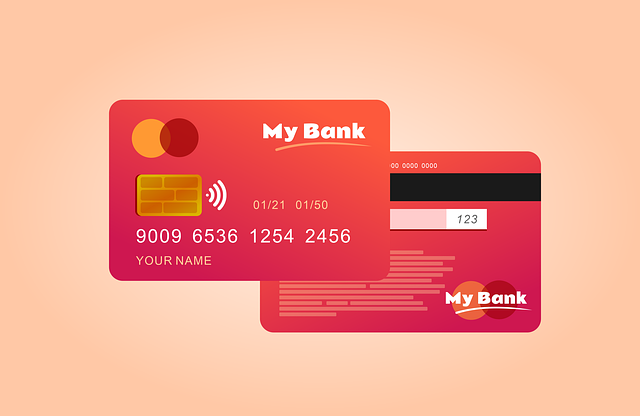When your payment terminal suddenly fails during peak hours, the damage goes beyond lost sales. For small businesses across the UK, the recent card payment outage in the UK causes losses for small businesses far deeper than missed transactions. It eroded customer trust, strained staff, and exposed the fragile digital infrastructure many rely on daily.
The UK is moving toward a cashless society, but what happens when digital payments fail? This content unpacks how the outage unfolded, its real-world impact on small business owners, and practical steps to prepare for the next failure.
What Caused the Card Payment Outage in the UK?
The disruption, which lasted nearly six hours on June 6th, was traced to a critical system failure at one of the UK’s major payment processing networks. According to industry sources, a software update led to a massive server overload, causing transaction authorisation delays and eventual denial of service across thousands of card terminals.
Key facts:
Date: June 6, 2025
Time: 9:30 AM to 3:15 PM (approx.)
Regions affected: Nationwide, with hotspots in London, Manchester, Birmingham
Payment providers: Primarily affected by failures in Visa and Mastercard networks
The Latest Card Payment Outage in the UK: What Happened?
On [Insert Specific Date], thousands of businesses across the UK were unable to process card payments. The failure impacted both debit and credit card transactions, with systems refusing contactless and chip & PIN methods.
Initial reports blamed a technical issue with a third-party payment processor, potentially linked to a software update or data centre glitch. Customers were forced to leave shops empty-handed. Small business owners were left scrambling to accept alternative payments — or turn customers away.
While large chains could fall back on mobile terminals or app-based payments, many SMEs suffered severe disruptions. This highlights why the card payment outage in UK causes losses for small businesses who depend on reliable, daily transactions.
Which Sectors Were Hit the Hardest?
Retailers: Lost walk-in sales during peak hours
Hospitality: Cancelled bookings and dine-in losses
Personal care: Hairdressers, barbers, and therapists unable to take payments
Market traders: No cash alternatives meant zero earnings that day
The Immediate Impact on Small Businesses
Small business owners, especially in hospitality and retail, were hit hardest. For many, a few hours of downtime meant hundreds — even thousands — in lost revenue.
Lost Sales and Revenue
Businesses with narrow financial leeway felt the effects of the outage almost immediately.
“We lost over £1,200 in just a few hours. It was a Friday — our busiest day,” said Carla Mendez, owner of an independent café in Shoreditch.
Retail shops, salons, and street vendors all reported abandoned carts, cancelled appointments, and refund requests. Many couldn’t process any digital transactions — even Apple Pay and Google Pay failed due to terminal dependencies.
Customer Frustration
Customers, unaware of the issue until reaching the checkout, became frustrated. Some stores faced angry walkouts, damaging customer loyalty.
Damage to Brand Reputation
Independent businesses depend heavily on trust and reliability. A failed transaction — even if it’s not their fault — reflects poorly and can discourage repeat visits.
Delivery services were forced to cancel online orders due to failed payments.
These outcomes point to how a card payment outage in UK causes losses for small businesses that rely on high-frequency, low-margin sales.
Emotional and Operational Strain on Business Owners
Beyond financial loss, the outage took a psychological toll. Business owners faced angry or confused customers demanding answers, frustrated staff unable to complete sales, anxiety over reputational damage, and uncertainty about when systems would be restored. One shop owner in Manchester noted, “It felt like being shut down, even though our doors were open.”
Over-Reliance on Digital Payments: A National Wake-Up Call
This incident exposed how vulnerable the UK’s small business ecosystem has become. As more businesses move away from cash, many lack contingency plans.
Heavy dependence on digital payment systems makes businesses vulnerable to complete shutdowns from a single failure. It also highlights gaps in merchant service provider communication and responsiveness.
Cash usage in the UK has dropped from 45% in 2015 to just under 15% in 2024. While convenient, this shift leaves businesses vulnerable when tech fails. Experts are now calling for greater resilience and backup systems in the financial infrastructure.
How a Payment Outage Disrupts Entire Supply Chains
When payments stop, the disruption spreads beyond the point of sale. Small businesses were unable to pay couriers and local suppliers, complete online orders, or reorder essential inventory. This breakdown in daily operations reflects how a card payment outage in UK causes losses for small businesses far beyond lost sales. It disrupts entire local economies.
Who Is Accountable During a Card Payment Outage in UK Causes Losses for Small Businesses?
Many business owners ask the same question during disruptions: “Who is to blame?” Sadly, the answer isn’t always clear. The card payment outage in UK causes losses for small businesses, yet accountability remains scattered.
-
Banks often shift responsibility to payment processors.
-
Payment processors usually cite vague “technical issues.”
-
Regulators like the FCA or PSR rarely provide timely updates or public explanations.
This lack of transparency compounds frustration. This situation makes it harder for small businesses to know what support or recourse they’re entitled to.
Can You Claim Compensation After a Card Payment Outage?
The short answer: it depends. Most merchant agreements limit liability for service interruptions. However, you can take these steps:
- Document the outage: time, date, customer impact
- Contact your provider with evidence of loss
- Escalate to the Financial Ombudsman Service if ignored
The Financial Conduct Authority (FCA) advises all providers to maintain fair treatment during outages. However, clear routes to compensation are rarely offered upfront.
Steps Small Businesses Can Take to Prepare
A single card payment failure can severely disrupt your business. Proactive preparation is the best defence.
Here are key steps:
Install backup payment systems – A second card reader with a different provider can be invaluable. Use secondary providers like Square, Zettle, or SumUp. Some may work independently of your main network.
Enable offline card transactions – Some terminals can queue payments when the internet fails.
Keep a small cash float – Even in a cashless economy, coins and notes can save the day.
Ensure your team is fully prepared to follow the fallback plan during outages.
Communicate clearly with customers – Use signage, social media, or SMS to notify customers of outages. Offer IOUs or delayed payments if trusted.
Mobile Payment Backup
Have a mobile hotspot or 4G-connected payment device for emergencies
These simple actions can reduce how a card payment outage in UK causes losses for small businesses during future events.
Real Stories: How Small UK Businesses Were Affected
- A London bakery lost over £800 in sales during a Saturday outage.
- A barber in Leeds refunded customers after failed transactions, eating into profits.
- A small café in Bristol accepted IOUs but struggled to reconcile payments later.
These stories aren’t isolated. They are repeated in cities and towns across the UK whenever digital payments go dark.
Is the UK Too Dependent on Card Payments?
Experts suggest the UK is at risk due to digital over-dependence. As more businesses abandon cash, resilience suffers.
Payment failures like this demonstrate that innovation must come with contingency. Redundancy, hybrid systems, and cash compatibility are essential.
What Regulators Say About Payment Failures
The Payment Systems Regulator (PSR) and FCA require firms to maintain resilient infrastructure. But enforcement is limited.
Businesses can:
- Report repeated outages to the FCA
- Demand better SLAs (Service Level Agreements) from providers
- Join SME advocacy groups that press for merchant rights
Should You Switch Payment Providers After an Outage?
If your provider failed to communicate, offered no support, or lacks fallback options — yes, consider switching. Look for providers that offer 24/7 UK-based support, include offline transaction capabilities, and provide transparent service level guarantees. Don’t let one outage permanently damage your customer relationships or revenue.
Has There Been Any Government or Institutional Response to Card Payment Outage in UK Causes Losses for Small Businesses?
Following the recent disruption, the Financial Conduct Authority (FCA) launched an investigation into the system failure. The card payment outage in UK causes losses for small businesses, prompting concern across sectors. UK Finance has urged providers to strengthen their systems with greater resilience and redundancy.
Meanwhile, small business groups like the Federation of Small Businesses (FSB) are actively lobbying for compensation, government-backed support, or tax relief to offset the financial damage.
Lessons from the Outage: What This Means for the Future
This incident serves as a powerful reminder: digital convenience must come with dependable infrastructure. While payment technology evolves, resilience planning must keep pace — particularly for businesses that don’t have the capital to absorb lost income.
Frequently Asked Questions
Q1: How often do card payment outages happen in the UK?
They’re rare, but increasing with system complexity. Recent years saw outages from major providers every 12–18 months.
Q2: Is it legal to operate as cash-only during an outage?
Yes, as long as your policy is clearly communicated and doesn’t discriminate.
Q3: Can I still take online payments during a terminal failure?
Sometimes. If your online gateway is separate from your in-store processor, it may still work.
Q4: What rights do I have as a merchant?
Your rights depend on your contract. When providers fail to act, the Financial Ombudsman offers a formal path for resolution.
Q5: How should I protect my business from another card payment disruption?
A: Use multiple providers, enable offline payments, and communicate quickly with customers.
Q6: Can small businesses get compensation for the outage?
A: There is no formal scheme yet, but trade groups are lobbying for it.
Q7: What’s the best backup payment method?
A: Keeping a secondary card reader from a different provider and accepting cash are the most reliable options.
Conclusion
It’s clear the card payment outage in UK causes losses for small businesses that are hard to recover from. But it also offers a powerful lesson.
By strengthening payment systems, training staff, and creating failover strategies, small businesses can bounce back faster.
As the economy becomes more digital, investing in resilience is essential for survival.
Want help choosing the right payment provider? Or building a payment resilience checklist? Let us help you safeguard your business.




